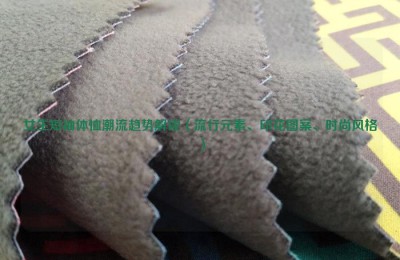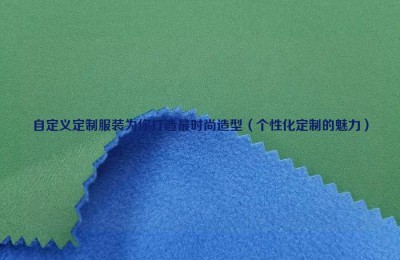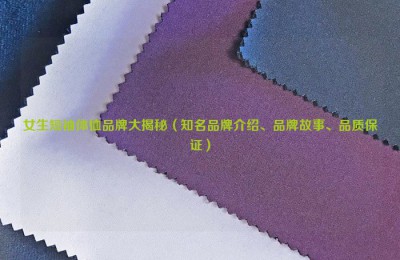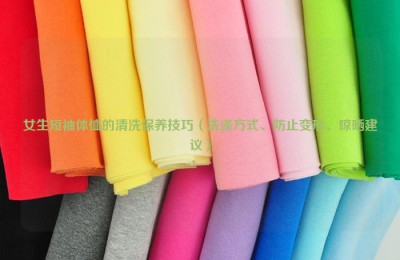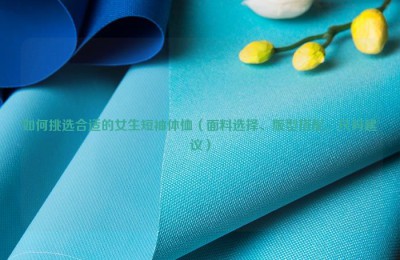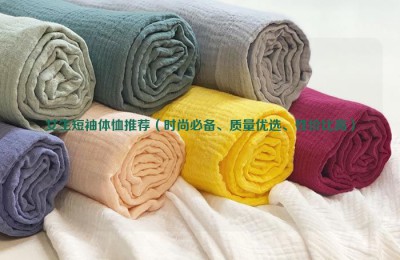It has become the consensus of all mankind to vigorously develop a green, low-carbon circular economy and promote the construction of ecological civilization. The green development of China’s textile and chemical fiber has always been at the forefront of the world. Recycling chemical fibers (also known as regenerated fibers), as a representative of the industry’s promotion of resource conservation and utilization, has gradually gained widespread acceptance and recognition among fabrics, brands and consumers. However, in the current recycled fiber market, problems such as incomplete traceability chains, shoddy products, unclear proportions, inconsistent regulatory standards, testing methods, and defective product conversion standards frequently arise. Enterprises need to support the sustainable development of the industry through clearer paths and more effective identification methods and platforms. In this context, the Trusted Platform for Green Fiber Products (STCP) came into being. As an important part of the Ruibang China Fiber Zero Carbon Action 2022, this platform actively responds to national and industry green development policies and contributes industrial strength to the construction of ecological civilization and green sustainable development from the perspective of the fiber industry.
On January 17, under the guidance of the Department of Consumer Goods Industry of the Ministry of Industry and Information Technology and the Market Supervision and Administration Bureau of Wujiang District, Suzhou City, and hosted by the China Chemical Fiber Industry Association and the National Advanced Functional Fiber Innovation Center, the event was held under the theme of “Towards Zero Carbon, Everyone Moves to New “China’s Recycled Textile Industry Trusted System-Green Fiber Products Trusted Platform Conference with the theme of “China’s Regenerated Textile Industry Trusted System” was held online. Jin Gaoling, deputy secretary-general of the China Chemical Fiber Industry Association, Cao Xiuyu, head of platform operations of the National Advanced Functional Fiber Innovation Center, representatives of relevant domestic and foreign brands, representatives of many companies in the textile and chemical fiber industry chain, and media reporters attended the meeting. The meeting was chaired by Jin Gaoling, deputy secretary-general of the China Chemical Fiber Industry Association.
Credible system for China’s recycled textile industry—STCP released
At the beginning of the meeting, a video led everyone into the trusted platform for green fiber products and gained a certain understanding of it. Subsequently, Cao Xiuyu, head of platform operations at the National Advanced Functional Fiber Innovation Center, introduced in detail the purpose and purpose of the establishment of the “Green Fiber Products Trusted Platform” and explained how the platform is applied.
The recycled textile industry is a typical green, environmental protection and circular economy industry, which is in line with the national strategy of “comprehensive, coordinated and sustainable development”. Although China has a complete ecological chain of the recycled fiber industry, it lacks a renewable traceability system and a credible certification system. In order to give full play to the social responsibilities of enterprises in the renewable industry, improve the certification and collaborative efficiency of upstream and downstream enterprises in the industrial chain, and steadily improve Given the industry status and influence in my country’s renewable ecological field, it is of great significance and urgency to establish STCP and build a technologically advanced, efficient and collaborative renewable trust platform.
Cao Xiuyu introduced that STCP carries out digital transformation and upgrading by providing lightweight applications to bottle flake factories, slicing factories, yarn factories, fabric factories, garments and brand owners. At the same time as online transactions, production data, warehousing data, logistics data, and transaction data can be trusted on the chain. Ultimately, the data from procurement, raw material input and output, production consumption, silk cakes, boxes, finished product input and output, invoices, and green certification will be transparently uploaded to the chain. Through the digital application of the platform, digital trusted upgrades are carried out, production, warehousing, logistics and other operations are carried out according to the platform’s standards, and real-time, credible and effective data are authorized to the platform.
Currently, the platform is undergoing the first phase of actual factory internal testing to complete the construction of basic data and create a complete trusted link from waste recycling to fabrics. By creating a trusted benchmark, based on trustworthy Unified requirements for quality, build a digital brand for recycled chemical fibers, build digital trusted standards, achieve standard access to production, circulation and transactions, build an industry platform structure, and launch digital trusted services.
From 2022 to 2023, the platform will carry out external expansion and connotation extension, continue to improve platform functions, expand platform service content, gradually deepen through digital trustworthy transformation, improve digital trustworthy solutions through top-level design, and realize the industrial chain Trusted access to data. In 2024, the platform will empower the entire industry chain to undergo digital transformation and upgrade, expand platform value, create benefits, and participate in customizing industry rules to create China’s own transparent, traceable, and trustworthy certification platform, and maintain the order of the green fiber and textile market , and ultimately build the platform into a world-class certification platform.
The industrial chain is united to speak out for green fiber
In the industry chain interview session, brand experts from the home furnishing and sports fields talked about the current problems encountered in the procurement and use of recycled fibers and the expectations of downstream brands for the platform from the perspective of downstream terminals.
Representatives of domestic sports brands said that ecological environmental protection is the eternal theme of green development and it is also the unshirkable social responsibility of brands. Recycling is a long-term mechanism that benefits the country and the people. Currently, the recycling methods for waste textiles generally include government-supported recycling of waste clothing, spontaneous recycling by non-governmental organizations, and Brand clothing companies independently recycle, etc. The recycling rate of waste textiles in China is not high, and the basic raw materials are highly dependent on foreign countries. Product prices are in a state of adjustment due to supply and demand, and companiesThe industry’s average production capacity is too dispersed, which is a relatively big problem currently encountered by clothing brands. He believes that the current industry’s publicity on the recycling of waste textiles is not enough, and companies and consumers lack the awareness and ability to participate. The recycling of textiles and clothing requires the entire society and citizens to actively participate and take action. In the future, brands will continue to follow the path of low carbon, work with the platform to promote the sustainable development of the textile industry and supply chain transformation, and speak out for green fiber.
The representative of the international home furnishing brand said that he has been responsible for the social responsibility audit in China and the sustainable development of the global comfort product procurement group for nearly 20 years. As a leading global home furnishing brand company, it pays attention to traceability of source data. A good system It is very important for data analysis. The trusted platform for green fiber products allows terminal manufacturers to have evidence to follow when facing inquiries from domestic and international brands, greatly strengthening brand data control. He mentioned that Energy saving and emission reduction are part of the “double carbon” goal, and renewable and recyclable materials are also an important part of it.
Another international sports brand representative said that through a trusted platform for green fiber products, the traceability system of a transparent supply chain can be solved, and dialogue with major international brands can be achieved through digital means. Organically combine digitalization with sustainable development and green environmental protection, and present the traceability chain in front of consumers. The platform achieves complete transparency from the consumer end to the manufacturing end. This is a very big breakthrough and a beneficial method to convince consumers.
He believes that the platform can be brand-led, and under the coordination of the brand, the transparent supply chain can be completely connected, and the brand requirements can be integrated into product development, and ultimately empower the product, develop popular products, and help brand sales and increase market share, ultimately achieving a win-win situation. He expects the platform to increase brand added value, improve development efficiency, increase product added value, and build brand stickiness.
In the lively online question and answer session, representatives of various companies actively participated, and the atmosphere of on-site communication was lively.
At the end of the press conference, Jin Gaoling, deputy secretary-general of the China Chemical Fiber Industry Association, said that during the China International Textile Yarn (Spring and Summer) Exhibition in April this year, the Green Fiber Products Trusted Platform will hold an offline release Yes, let’s wait and see.
AAADFGTEHTRY

